Transhumanism is a philosophical and cultural movement that seeks to enhance human capabilities beyond what is considered natural or traditional. It is based on the belief that we can use technology to transcend our current limitations and become something more than human.
This could include a vast array of technological enhancements, such as brain-computer interfaces, bionic limbs, and genetic engineering. Personal identity, on the other hand, refers to our sense of self and how we define ourselves as individuals.
It encompasses everything, from our memories and experiences to our beliefs and values. Our personal identity is what makes us unique, shaping how we perceive the world around us.
Technology has played a significant role in shaping our sense of self over the years. From the printing press to social media platforms like Facebook and Twitter, each new technological advancement has impacted how we communicate with one another and how we define ourselves in relation to others.
The Impact of Technology on Personal Identity
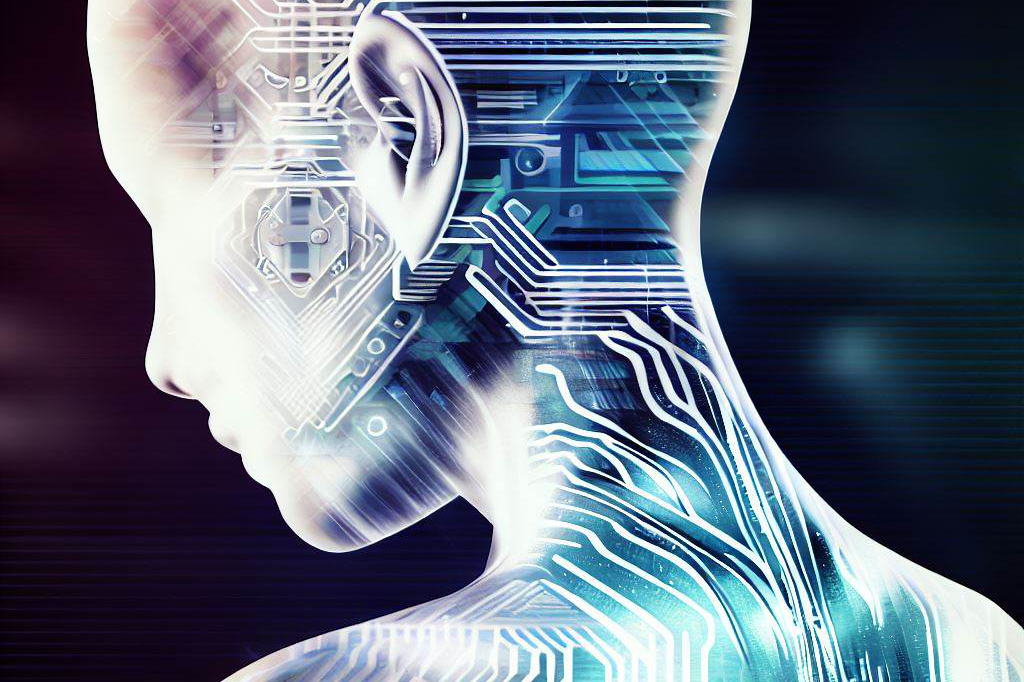
As technology continues to advance at an unprecedented pace, it is changing not only how we interact with each other but also how we view ourselves as individuals. Social media platforms have allowed us to create digital identities that can be vastly different from who we are offline.
We also have access to vast amounts of information about people around us through online profiles or search engines like Google. One effect of this digitization of personal identity has been a blurring between the public and private domains.
Social media platforms allow people to share intimate details about their lives with anyone who cares enough to look, which can make it difficult for people to keep aspects of their lives private if they wish.
Another effect is that technology has created new opportunities for presenting oneself in various ways — authentic or not — fostering intriguing questions about authenticity in self-presentation online versus offline: are people truly being themselves when interacting digitally?
What is Transhumanism?
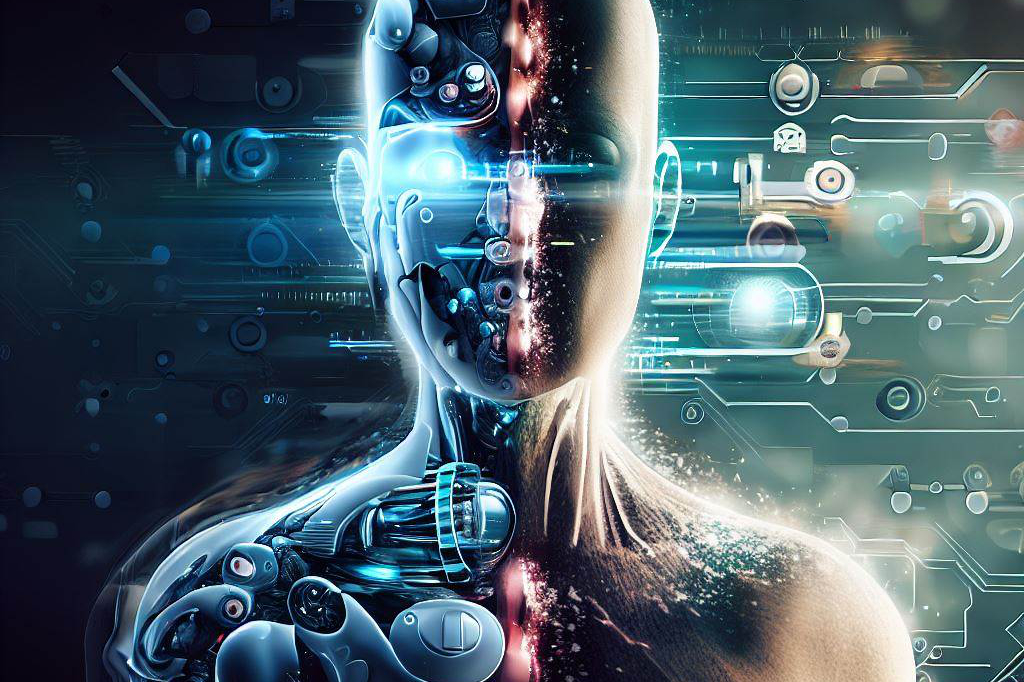
Transhumanism is a term that has been around since the 1980s. It is based on the belief that we can use technology to transcend our current limitations and become something more than human. This could include things like
- brain-computer interfaces,
- bionic limbs,
- and genetic engineering.
One of the main goals of transhumanism is to enhance human capabilities beyond what is considered natural or traditional. Advocates believe that we have a moral obligation to do so, as it could allow us to overcome many of the limitations that currently hold us back as individuals.
However, there are also ethical concerns surrounding transhumanism and its potential effects on personal identity. For example, some people worry that technological enhancements could lead to a loss of individuality if everyone becomes more similar in their abilities.
Others are concerned about the implications for privacy and autonomy if we begin to rely too heavily on technology for our well-being. Ultimately, the impact of transhumanism on personal identity will depend on how it is implemented and regulated in society.
Transhumanism and the Enhancement of Human Capabilities
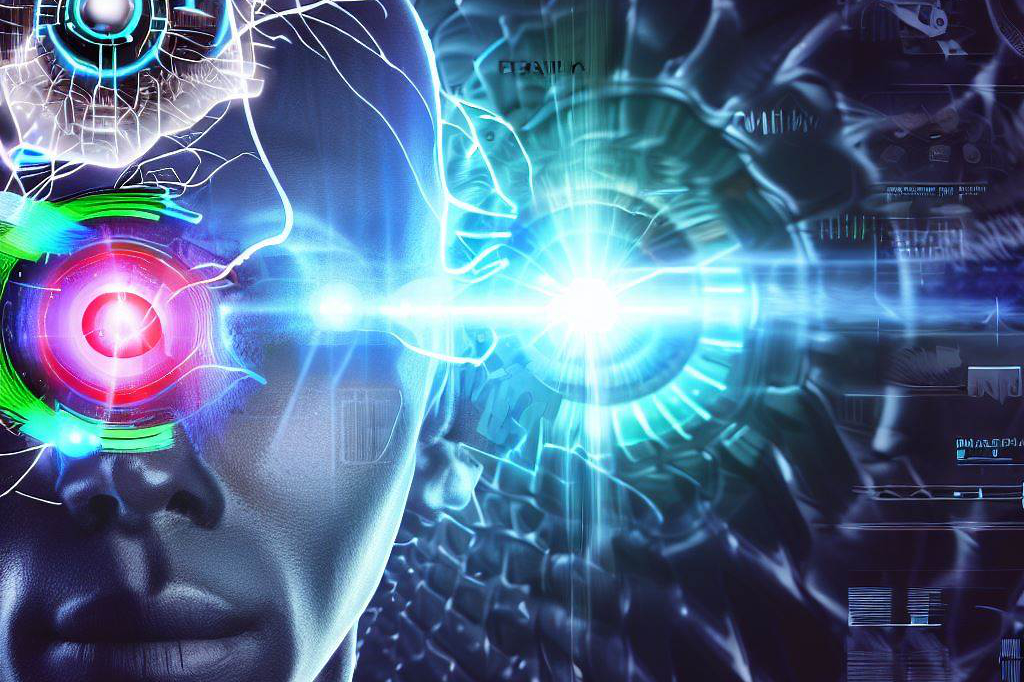
Transhumanist Beliefs on Human Enhancement
Transhumanism is a school of thought that seeks to enhance human capabilities through the use of technology. It asserts that humans have the potential to become more than what they are today, and that technology can help us achieve this potential.
Transhumanists believe that we should use science and technology to augment our physical and mental capacities, extend our lifespan, and even transcend our biological limitations.
At its core, transhumanism is driven by a desire to improve the human condition.
This includes exploring ways to overcome disease, disability, and aging. Proponents of transhumanism argue that technological enhancements can provide us with a better quality of life, increased longevity, and greater freedom in how we live our lives.
Examples of Technologies That Enhance Human Capabilities
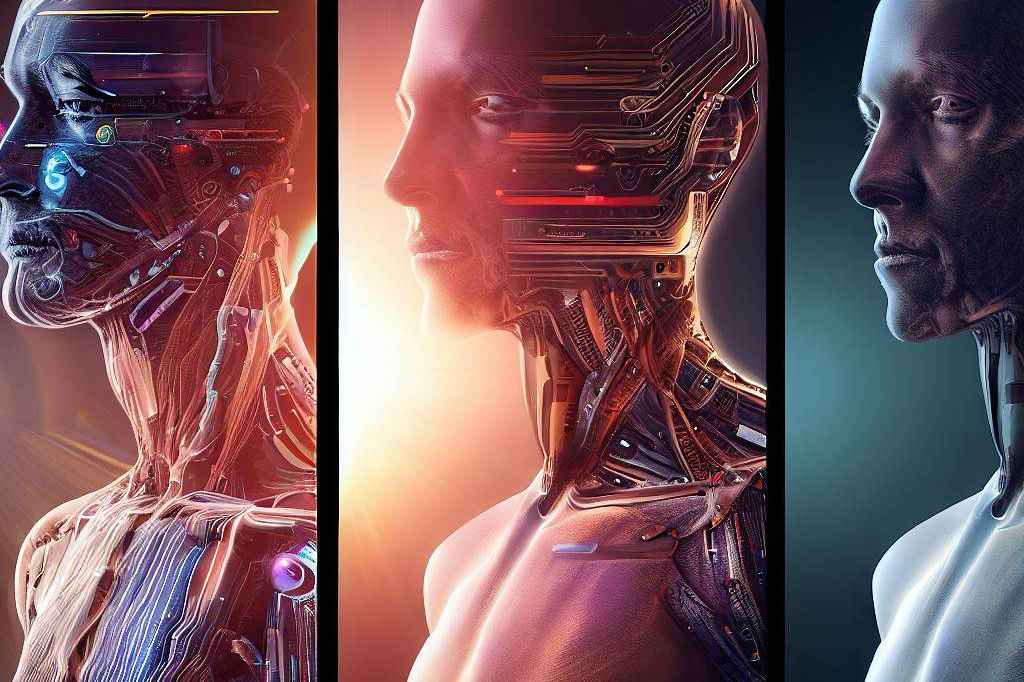
There are many examples of technologies that enhance human capabilities in various ways. Some focus on physical enhancement, while others seek to augment cognitive abilities.
One example is prosthetics – artificial limbs or body parts designed to help amputees regain lost functionality. Prosthetics have come a long way in recent years thanks to advances in robotics and materials science.
They can now be controlled using thought alone or provide sensory feedback through electrodes implanted into the nervous system.
Cognitive enhancers are another type of technology used for human enhancement.
These include drugs like modafinil (used for treating narcolepsy but also used off-label for its ability to boost attention and wakefulness) or nootropics (substances claimed by some proponents as brain-boosters). These substances are believed by some transhumanists to be means for increasing focus, memory retention, or learning capacity.
How These Enhancements Affect Personal Identity
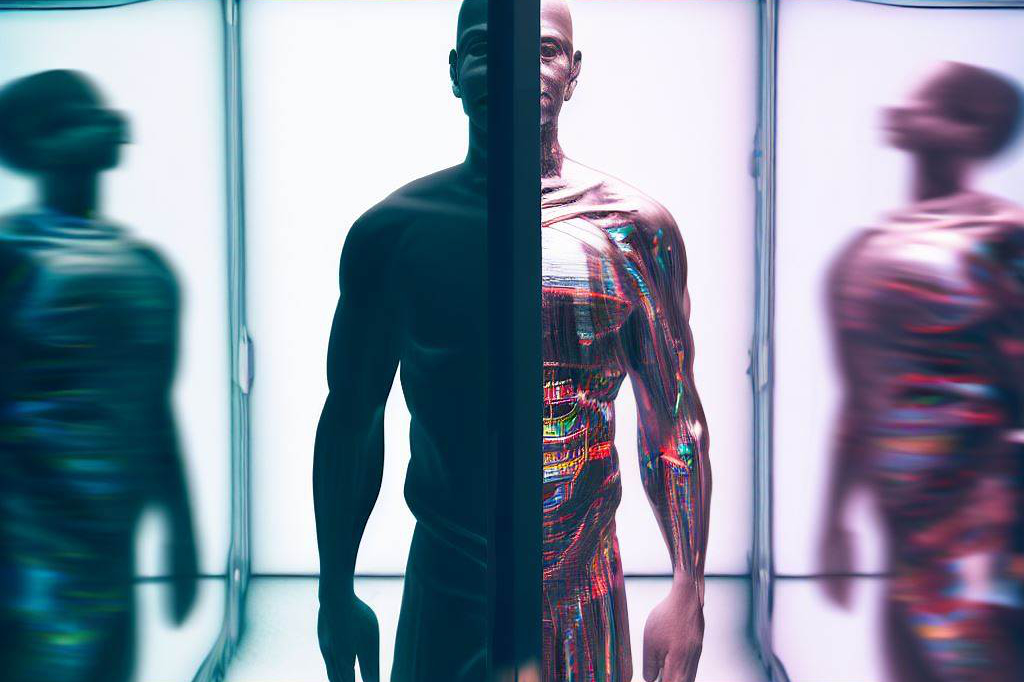
One question often raised about technological enhancements is how they impact personal identity. In a sense, our sense of self is tied to our physical and mental capacities. If we were to enhance these capabilities beyond what is currently considered “normal,” how would this affect the way we see ourselves?
Some transhumanists argue that such enhancements would not change who we are on a fundamental level. They see human enhancement as an opportunity to expand upon existing capabilities, not replace them entirely.
Others, however, are more skeptical about the potential consequences of enhanced abilities. There are certainly risks associated with technological enhancements – particularly if they are only available to a select few individuals or if they exacerbate existing inequalities in society.
Additionally, some worry that too much emphasis on technological enhancement may lead us to neglect other important aspects of our humanity – like empathy or creativity. Nevertheless, proponents of transhumanism argue that these risks can be mitigated through thoughtful consideration and careful regulation of these technologies.
The Digital Self: Online Identities and Virtual Reality
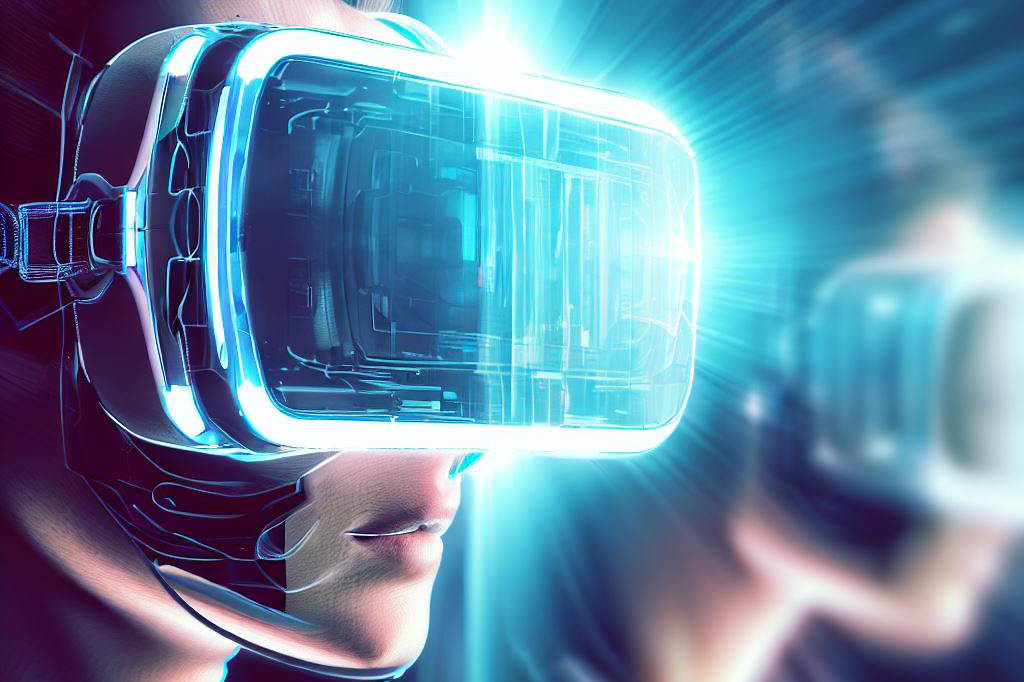
Exploration of the Concept of Digital Selves and Online Identities
In our increasingly digital world, the concept of a “digital self” has become more relevant than ever before. The digital self is the collection of data and information that individuals create about themselves online, whether it be through social media profiles, blogs, or other forms of digital expression.
This information becomes an extension of one’s personal identity and can have a profound impact on how others perceive them. Social media has played a major role in shaping our understanding of online identities.
Platforms like Facebook, Instagram, and Twitter allow users to craft their own digital personas by sharing photos, thoughts, and opinions with their followers. While this can be empowering for some individuals who use social media as a means to express themselves freely, it can also be disconcerting when personal information becomes public knowledge without one’s consent.
How Virtual Reality Blurs the Lines Between Physical and Digital Selves

The rise of virtual reality (VR) technology has added another layer to our understanding of personal identity in the digital age.
VR allows users to enter fully immersive digital environments where they can interact with virtual objects just as they would in the physical world. As such, VR experiences have led many people to question what it means to exist in both physical and virtual spaces simultaneously.
One potential consequence of this blurring between physical and digital selves is that people may start to perceive their virtual selves as being just as real as their physical bodies. This could impact how people think about things like gender identity or disability – if someone can “exist” without a physical body in a virtual space, does that redefine what we consider necessary for human existence?
Analysis on How These Technologies Impact Personal Identity
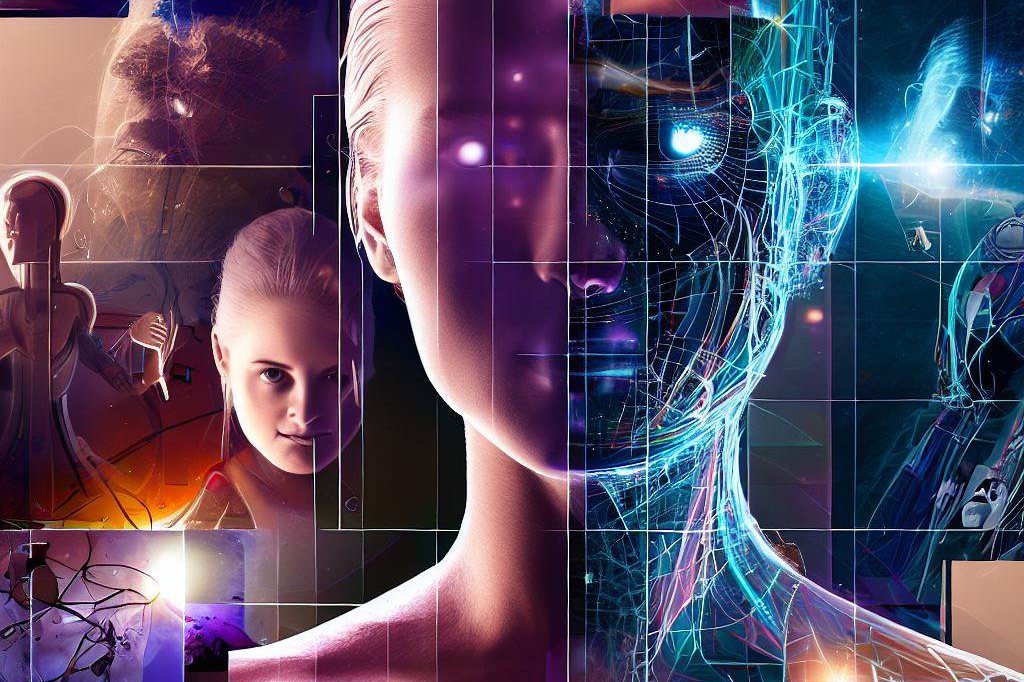
Overall, these new technologies are having a profound impact on how we understand personal identity. On the one hand, they offer new avenues for self-expression and self-exploration. On the other hand, they also raise important ethical questions about privacy, autonomy, and equality.
For example, people who create online identities through social media or other digital channels may feel pressure to present a certain image or personality that aligns with their online brand. This can lead to a sense of inauthenticity or even depression if individuals feel like they are unable to live up to the expectations of their digital selves.
Similarly, while VR technology offers exciting new possibilities for immersive storytelling and entertainment, it also raises concerns about privacy and safety. For example, what happens if someone’s virtual identity is hacked or stolen?
How do we ensure that people have control over their digital selves and are not subject to unwanted surveillance? As these technologies continue to evolve, it will be crucial for us as a society to grapple with these thorny questions in order to ensure that we are using them in ethical and responsible ways.
The Ethics of Transhumanism: Autonomy, Privacy, and Equality

Examination of ethical concerns surrounding transhumanism
Transhumanism is a movement that seeks to enhance human capabilities beyond what is currently natural or possible. While this may seem exciting and promising for the future, it has also raised serious ethical concerns. One major concern is the potential for a widening gap between those who can afford expensive enhancements and those who cannot.
This could lead to further social inequality and discrimination against those who cannot afford enhancements, leaving them behind in a society that places a high value on enhanced abilities. Another concern is the potential for unintended consequences from the use of these technologies.
While we may be able to enhance our physical or cognitive abilities, we may also be inadvertently altering parts of ourselves that are integral to our identity and sense of self. For example, if we use cognitive enhancers to improve memory and learning, it may alter our personality or creativity in unintended ways.
Discussion on autonomy, privacy, and equality in relation to technological enhancement
Autonomy is one key ethical concern when it comes to transhumanism. The question arises as to whether individuals have the right to enhance themselves beyond what nature has provided or whether society should regulate these enhancements.
For example, if someone wants an enhancement that could potentially harm them physically or mentally in the long term but they still choose it voluntarily with informed consent, do they have the right to do so? Privacy is another important issue, as advances in technology allow us greater access to an individual’s personal life than ever before.
As medical technology improves and implants become more advanced, there are concerns over data privacy as well as how much control individuals have over their own bodies. Equality is also a key concern as a result of technological advancements; it raises questions about how we assign value or worth based on various factors like wealth (as stated earlier), access to medical care, or geographic location.
Analysis on how these concerns affect personal identity
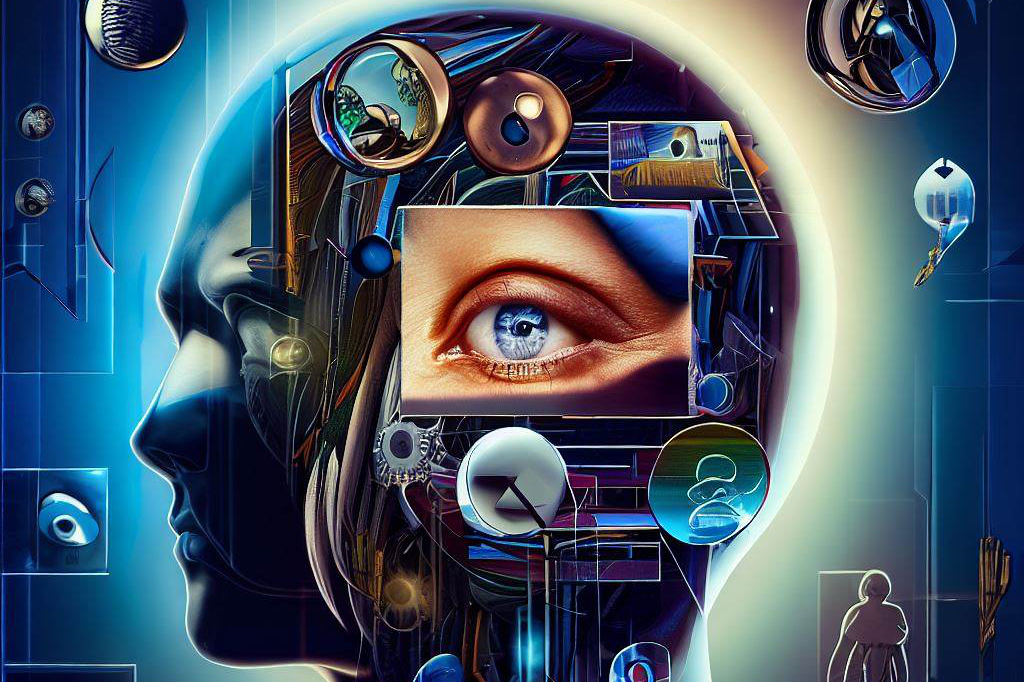
The ethical concerns associated with transhumanism can have a significant impact on personal identity. For example, if an individual chooses to enhance themselves with technology, it could alter their sense of self by changing who they are physically or cognitively. This alteration could lead to feelings of dissonance and alienation from one’s own identity.
The potential for social inequality and discrimination based on enhancements can also impact a person’s sense of self-worth and belonging in society. The ability to choose enhancements may also be influenced by societal expectations and pressures, which could further erode one’s sense of autonomy.
The loss of privacy associated with technological advancements can change how we view ourselves as individuals. As our bodies become more connected to the digital world, it raises questions about who has ownership over our data and whether we truly have control over our own identities.
The ethical concerns surrounding transhumanism have significant implications for personal identity. It is important that we carefully consider these issues before moving forward with any new technological advancements in this field.
The Future of Personal Identity in a Technological World

Transhumanism and the Evolution of Personal Identity
As technology continues to advance, so too does our ability to enhance, augment, and even replace aspects of our physical bodies. This raises important questions about what it means to be human, especially as the lines between biological and technological progress become increasingly blurred. Transhumanists believe that technological innovation will usher in a new era of human evolution – one where we can transcend our biological limitations and achieve greater levels of physical and intellectual prowess.
While some may view this as a positive development that will help us achieve previously unimaginable feats, others worry that it may come at the cost of our sense of self.
As we begin to incorporate more technology into ourselves, what will happen to our understanding of what it means to be human?
Will we lose touch with our biological roots?
Or will we evolve into something entirely new?
Potential Benefits and Drawbacks for Individuals

The potential benefits of transhumanism are vast – from enabling people with disabilities to lead more fulfilling lives to enhancing cognitive function for everyone. However, there are also potential drawbacks that must be considered.
For example, if only the wealthy have access to these technologies, it could exacerbate existing inequalities between the haves and have-nots. Additionally, some worry about the long-term effects on physical health – for example, if a person has augmented their body with technologies that allow them to push themselves beyond normal limits, what happens when their body inevitably wears out?
Another potential drawback is the impact on personal identity. As we become increasingly reliant on technology for everything from memory recall to emotional regulation, it raises questions about who we are without those tools.
Will we become so dependent on technology that we lose sight of our own intrinsic value as human beings?
Or will incorporating technology into our lives help us better understand ourselves and the world around us?
Potential Benefits and Drawbacks for Society

The impact of transhumanism on society as a whole is also a topic of much debate. Some believe that widespread adoption of these technologies could lead to a more egalitarian society, where everyone has access to the same enhanced capabilities. Others worry that it could exacerbate existing social inequalities by giving those with the financial means to enhance themselves even more advantages over those who cannot afford it.
Additionally, there are concerns about how these technologies will affect our relationships with one another.
Will we become increasingly isolated as we rely on technology to fulfill our emotional needs?
Or will it bring us together in new and exciting ways?
As with any technological advance, there are both potential benefits and drawbacks – the key is to strike a balance that ensures we use technology to enhance our lives without losing sight of what makes us human.
Final Thoughts

We have explored the relationship between transhumanism and personal identity. We have seen how technology has enabled us to enhance our physical and cognitive abilities, leading to new questions about what it means to be human.
The rise of digital selves and virtual reality has further blurred the lines between physical and digital identities, raising even more complex ethical concerns. One of the key themes that emerged from our analysis was the importance of autonomy in shaping personal identity in a technological world.
The ability to choose which enhancements we undergo or which aspects of ourselves we reveal online is essential for maintaining a sense of self. Privacy also emerged as a crucial concern, as the potential for surveillance or data breaches could threaten personal freedom and individuality.
Issues of equality were highlighted as essential considerations in transhumanism debates, ensuring that technological advancements are not only available to those with financial means but accessible to everyone. While there are certainly many ethical concerns surrounding transhumanism and its impact on personal identity, there is also reason for optimism.
New technologies have the potential to transform our lives in ways that were once unimaginable, from curing diseases to enhancing creativity and problem-solving skills. As we continue exploring these possibilities while carefully considering their ethical implications, we can work towards creating a future where technology enhances rather than diminishes our humanity.
While there are no easy answers when it comes to balancing technological advancement with preserving personal identity, it is clear that these are critical issues that demand ongoing attention and dialogue across academic disciplines and society as a whole. Ultimately,it is up to us as individuals to consider what kind of world we want to create for ourselves and future generations – one where technology continues reshaping our sense of self while allowing us new opportunities for growth, or one where technology must be held back against outdated ideas about human nature?

C M, a seasoned editor, journalist, and consultant, is deeply fascinated by the convergence of technology, space, and the future of humanity.
With a particular interest in transhumanism, futurology, and the philosophical and ethical dimensions of these domains, C M serves as the lead contributor to TranscendSphere and SpaceSpotlight.
When not penning insightful articles on these rapidly evolving fields, C M indulges in their love for podcasts and books, proudly embracing their status as a ‘Happy Nerd Extraordinaire!’





